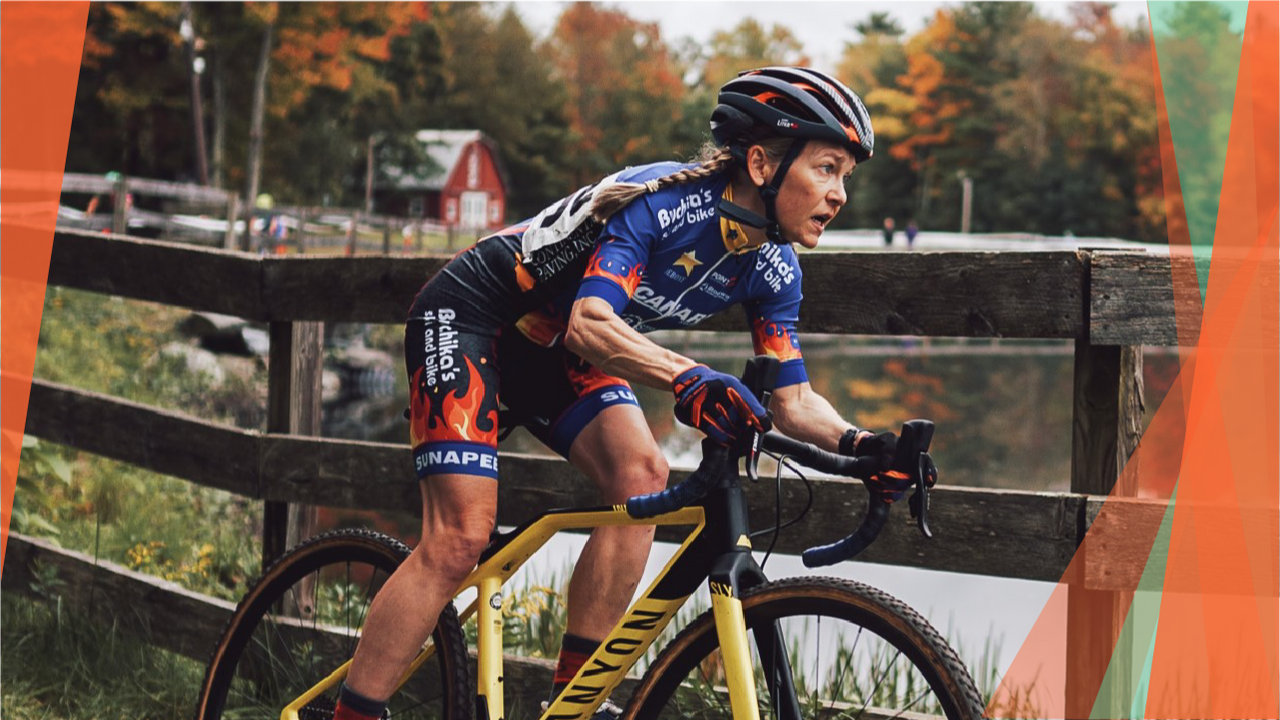Case Study on Kerry Litka
Sep 01, 2022
Kerry Litka talks about her change of perspective as a post-menopausal woman
For a change of pace, I thought that a case study of a woman in our community might be of interest to my readers, and it ties in nicely with the sale of my Menopause 2.0 course (the last time it goes on sale until 2023). Kerry Litka originally submitted a testimonial for the Menopause course, but then she also sent in more of her story, and it really resonated as I think we often beat ourselves up for not being who we used to be, and the mind shift is so incredibly difficult. Thank you, Kerry, for sharing this important point- we are different now than our pre-menopausal selves, and we can achieve success when we rethink how we train and what is best for longevity in sport and health for our own bodies!

From Kerry ...
I wanted to share some additional insight and a recent experience that adds to my testimonial but might not necessarily be appropriate there. As a now post-menopausal athlete, one of the things that I found incredibly helpful in the Menopause course was likely not intended to be part of their curriculum, but the impact it had on my ability to view my own training and racing is huge. Like most people these days, I see a lot of things on social media and the internet and am always experiencing some level of FOMO and "am I doing enough/doing the right thing?" when I see what other athletes are doing, especially my peers.
The thing is, I am young for a post-menopausal person (only 45 - turning 46 at the end of the month), and I don't always see myself as older. I still train and race at a high level and compete against women half my age. Lately, the trend in cycling has been the ultra-endurance type of events in the gravel scene, as well as long-distance mountain bike racing. My primary focus right now is cyclocross, which is likely the best sport for my body since the events are short (40-50 minutes) and very intense. The type of training it requires is perfect for the menopausal athlete - lots of high-intensity short intervals, lifting of heavy things, sprints, etc. And yet I see a lot of the women I compete against who are younger than me doing all of these super long gravel events. And suddenly, I found myself thinking, "am I missing out/should I be doing that/will they have some sort of superior advantage over me once cross season comes? I don't do long rides anymore..."
And then I sat for a moment and went, "those events are fine for a 25-year-old or a 30-year-old. Their bodies can handle it. YOUR BODY at that age could handle it. But your body NOW would not benefit from it. You are not going to miss out on training or come into the season underprepared because you did not do 6+hr gravel races or 4hr mountain bike and road rides." I specifically avoid those types of events because I know that they won't help me get faster, intellectually I know that those will break my body down, have a catabolic effect on my muscles, and send me backward. My short, 75-minute rides and my gym workouts are what are keeping me strong even as I am one-year post-menopause.
Taking the menopause course helped alleviate a lot of the emotional and mental stress that one experiences when comparing herself to other competitors. I know the best thing to do is step away from social media and the internet, but at the same time, I find reading race reports and seeing photos inspiring. So for me, I was able to find balance and appreciate what others are doing but also recognize that what they are doing is entirely inappropriate for my physiology and my needs.
Just as we would never push an adolescent runner into marathons and ultras until their body had matured and acclimated to years of gradually increasing volume and mileage, we need to recognize that the older athlete has a similar trajectory, albeit in the opposite direction.
Kerry Litka
(Used with permission)


